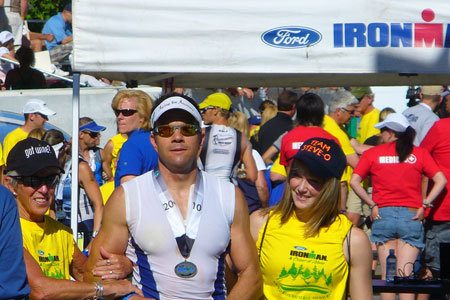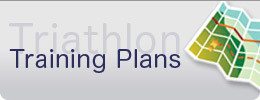Updated on August 3, 2016
“Swim 2.4 miles! Bike 112 miles! Run 26.2 miles! Brag for the rest of your life!” — Commander John Collins, USN (1978)
A client asked me recently about choosing which IRONMAN distance race (2.4-mile swim / 112-mile bike / 26.2-mile run) to compete in:
Just thought I’d reach out and get your input for choosing my first Ironman – what’s the best race for me – and how to go about registering. I’ve decided I’m going to try to tackle an Ironman next year. I’ve heard of the great difficulty in registering for Ironman events because registration is mostly open to the athletes competing in that years race or volunteering. Do all the events typically sell out the day of?
My answer:
To clarify, IRONMAN® and IRONMAN Triathlon® are registered trademarks of the World Triathlon Corporation. “Official” IRONMAN races are owned by WTC (e.g. IRONMAN Arizona, IRONMAN Lake Placid) and each offers qualifying spots to the Ironman World Championship in Kona, Hawaii in October each year. The complete list of IRONMAN races can be found at ironman.com.
“Iron distance” or “full distance” refers to an event with a 2.4-mile swim, 112-mile bike and a 26.2-mile run – the distances of the Waikiki Rough Water Swim, the Around Oahu Bike Race and the Honolulu Marathon, which were combined to create the original IRONMAN in Hawaii in 1978.
Some (but not all) of the IRONMAN races sell out for the following year on the day registration opens, which is typically the day after the current year’s race. The races that have been around for a few years like Ironman Arizona and Ironman Lake Placid sell out immediately while the newer races like Ironman Boulder may or may not eventually sell out but not the same day registration opens. I’ve noticed that IRONMAN has also increased the number of participants in each race over the years plus added more races so there is usually an open race available for most times of the year.
There are also other “iron distance” triathlons that are not IRONMAN-branded and offer the same 140.6 miles in distance including:
- Challenge Roth (formerly IRONMAN Europe) in Roth, Germany in July
- Michigan Titanium in Michigan in August
- Great Floridian Triathlon in Florida in October
- HITS Triathlon Series at multiple locations in the U.S.
Here are 8 important factors to consider when choosing your iron distance race:
- Time of Year: Will you do the majority of your Ironman-specific training in the winter or in the summer? For example, if you sign up for a May race, you’ll be doing long rides in February and March, which may not be bad if you live in Florida or California but may be a challenge if you live up north.
- Swim Start: Are you comfortable with a mass swim start with 2,000+ athletes in some of the IRONMAN-branded events? If not, find a race with a smaller field or a race with a wave start.
- Race Size: Do you want to race on a crowded course or would prefer to race within yourself without worrying about packs of other athletes?
- Course Challenge: Does the course play to your strengths? If you’re a strong climber consider a hilly course like Ironman Lake Placid rather than the flat Ironman Florida.
- Venue: What else is near the race site? If bringing friends or family, are there other activities that they can enjoy while you’re doing registration, swim practice, etc?
- Training Partners: Do you have friends who are training for the same race or another race around the same period of time? It can be lonely doing all of your long rides and runs alone.
- Weather: What is the weather typically like where and when you will train versus where you will race? Ideally, they should be similar. If not, avoid extremes.
- Budget: How far are you willing / able to travel? The more time zones you travel, the more time you should allow for adjustment.
Need help with training for your IRONMAN distance triathlon? Be sure to check out all of our training plans.
Happy training,
David
About the author:
David B. Glover, MS, CSCS has completed 28 IRONMAN distance triathlons including two sub 9 hour finishes and winning Vineman Full twice. Now, David’s passion now is helping triathlete and other endurance athletes achieve their dreams through his online triathlon education and training company, ENDURANCEWORKS. David has an MS in Exercise Physiology and is certified as a coach by USA Triathlon and USA Cycling as well as having his CSCS from NSCA. After six years of living, training and coaching in the triathlon mecca of Boulder, CO, David currently resides in Southern California.


